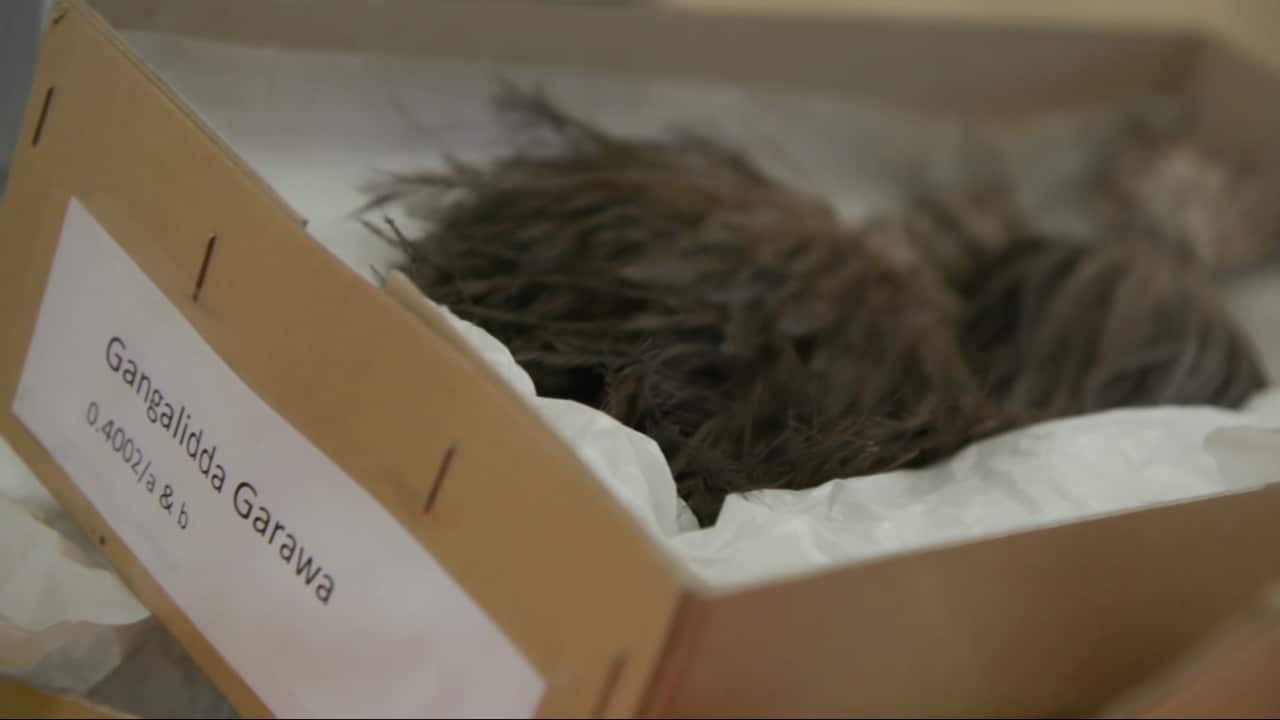The repatriation of stolen Indigenous remains and artefacts is a powerful gesture that has a strong influence on the way culture is revitalised in Australia, and a recent trip gave me a better understanding of how.
As a Mirning and Wirangu boy from the Far West Coast of South Australia, growing up with a loss of cultural understanding was a direct result of colonisation and the way British colonists deprived my ancestors of their way of life.
Although my culture is still strong and our traditional ways of life are still practised every day, colonisation has taken away my people's ability to live and breathe as our ancestors did to our full potential. And it happens with something as simple as taking away our cultural tools we've used for thousands of years.
I learned more about this during my trip to Moungibi (Burketown), on the other side of the country. There, it's a similar story for the Gangalidda-Garawa people who had significant cultural artefacts taken from the "dead hands" of their "ancestors," as a senior law-man told me.
My time there was spent with a Senior Gangalidda Law Man, Murrandoo Yanner, who told me the story of how the artefacts were "stolen" around "116 years ago," and the impact it's had on his people. "It's not so much just the object, it's the spirit that comes back with it – that goes away with it – we welcome it home," Murrandoo told me.
"It's not so much just the object, it's the spirit that comes back with it – that goes away with it – we welcome it home," Murrandoo told me.

Senior Gangalidda Law Man, Murrandoo Yanner. Source: NITV News
"Those really sacred ones you would've had to shoot the mob to get those off them, so they was taken from dead hands of our ancestors here," Murrandoo said.
When I was there, I was only allowed to view five of the sacred artefacts. The other seven were "secret, sacred items we're not allowed to talk about."
The 12 artefacts were returned from the United Kingdom after Murrandoo's son, Mangubadijarri, .
Mangubadijarri, who will one day step into the shoes of his father as a Senior Law Man, showed me Gangalidda country while I was there for a week, and it's an experience that will stay with me for the rest of my life.
Meeting Mangubadijarri for me was a breeze. A young 26-year-old Gangalidda man who's well-articulated and educated in both his culture and western society. He told me about his time studying law and international relations at Bond University on the Gold Coast. He discussed his work for the United Nations in Geneva, and how it's led him home to Moongabye.
He told me about his time studying law and international relations at Bond University on the Gold Coast. He discussed his work for the United Nations in Geneva, and how it's led him home to Moongabye.

Mangubadijarri Yanner, who will one day step into his father's shoes as Senior Gangalidda Law Man. Source: NITV News.
"I came home for cultural reasons and to be connected to country," Mangubadijarri told me.
"It's extremely important; these items were returned as they are the tools that allow us to continue to practice, preserve and develop our culture that's been alive since the very first sunrise.
"We can't keep our culture alive and strong if we don't have the tools to do so. So having these items back here and being able to use them on country for ceremony, song and dance, will allow us to provide the knowledge of culture to the younger generation," said Mangubadijarri.
From hunting and eating the traditional food of the Gangalidda people to watching, sitting and learning about their stories through cultural dance, reminded me more about my own culture.
At the end of my time in Moungibi, I left feeling grateful that I was invited into Gangalidda-Garawa country and shown and taught about their traditional ways of living. It was one of the most special journeys I've been on.
Still, I felt sadness at the same time, because I was reminded of the deprivation of culture my ancestors experienced, which in turn, has resulted in me not living my true cultural way of life to its full potential.










